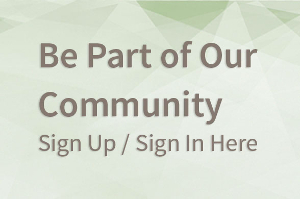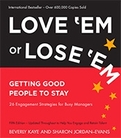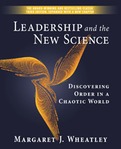BK Blog Post
Five Leaders Talk About Getting Their Asses Kicked--And How It Helped Them Succeed
 Posted by
Jeevan Sivasubramaniam,
Managing Director, Editorial,
Berrett-Koehler Publishers Inc.
Posted by
Jeevan Sivasubramaniam,
Managing Director, Editorial,
Berrett-Koehler Publishers Inc.
In his latest book, Bill Treasurer explains why all leaders will inevitably experience a "kick in the ass" and how the way in which they handle that kick and see it as an opportunity to grow and learn, not one to ignore or conceal, makes all the difference to a leader's maturity and future success.
Here are five well-known leaders who each experienced a sharp kick, and how they learned from it:
1. Hiten Shah, Co-Founder, KISSmetrics: So certain was Shah of what trends would be successful, he and his co-founder spent $1 million on a web hosting company. They thought that because they were perfectionists who liked to account for every little detail, they could build in all the bells and whistles a customer would want in such a service. The company never even launched because they later discovered most customers didn't care about the things they cared about. Customers aren't perfectionists--they just want what they need and ignore the rest.
How he got humble: Shah now focuses on spending smart and focusing on what he calls "customer delight" which focuses on what really gets consumers excited...and keeping his own ego at bay.
2. Tim Ferriss, NY Times bestselling author: When Ferris founded BrainQUICKEN in 2001, he was working 14-hour days. He committed to way too many "cool" opportunities and projects, and though he did manage to sell his company later, the long hours and exhaustion took its toll and his butt was kicked in terms of commitments and sheer exhaustion. It was as a reaction to this life that he wrote "The Four-Hour Work Week."
How he got humble: Ferris realized that he does not have the energy nor the time to take on all the things he wants to take on. He now tells himself that if he is not 100% excited about something, he will decline. He says, "Things that seem 'kind of cool' or 'may have potential' just fill up your calendar and leave you wondering where the last year--or 10--went."
3. Derek Sivers, Founder, CD Baby: The tremendously successful independent music retailer's founder has stated that in earlier years, his employees staged a mutiny to try and get rid of him. The company had apparently devolved into a culture of entitlement that was all about employees' benefits as opposed to those of their clients. He remained very angry and vented about this publicly, which actually only served to portray him in a bad light as dictatorial. Public butt-kicking in terms of negative perception soon followed.
How he got humble: When writing about his experience in his bestselling book, he realized that as the founder and leader, he was responsible for moderating and overseeing culture. Although he believed in employee independence, he realized that he had actually chosen to ignore issues until it was too late. He openly admitted in his book, "I realized it was all my fault. I let the culture of the company get corrupted. I ignored problems instead of nipping them in the bud."
4. Noah Kagan, Founder, AppSumo: In 2005, Kagan was employee #30 at Facebook and a product manager. By all estimates, he was on track to be immensely successful and wealthy as Facebook began its meteoric growth. Facebook was his entire life--his social circle, validation, and identity. Then he got fired. Just two months prior, he had received a promotion and a raise. He was bitter, depressed, and couldn't understand how he--a promising star--was let go. He had been one of the strongest voices and most determined to guide the company's future--and that was the problem.
How he got humble: Kagan realized that his identity was a lot more tied up with Facebook than was healthy. Because it represented so much of him, he was unable to change and adapt as the company changed. The more the company evolved, the more he wanted to dig in and stay the same because Facebook was, in many ways, his brand, too. Kagan realized that it was not about him, nor should it be. He later found the now-successful venture AppSumo, which helps others start their own businesses.
5. Reed Hastings, Founder, Netflix: The Netflix CEO took a gamble and in September of 2011 announced that the streaming service and the DVD rental service would become two separate entities and that the streaming service would now be called Qwikster. Customer reaction was strong to say the least and they lost over 800,000 subscribers. Overnight, the company had gone from a customer favorite to a greedy corporation, and Hastings had his butt handed to him.
How he got humble: Hastings got humble the old fashioned way: by apologizing profusely and honestly and then correcting things quickly. Hastings did not mince words and said "I messed up...I owe everyone an explanation...I slid into arrogance based upon past success." There were concerns as to whether the apology would work, but it did. Netflix is now primarily a streaming service with countless original productions of its own and over 80 million subscribers worldwide.






